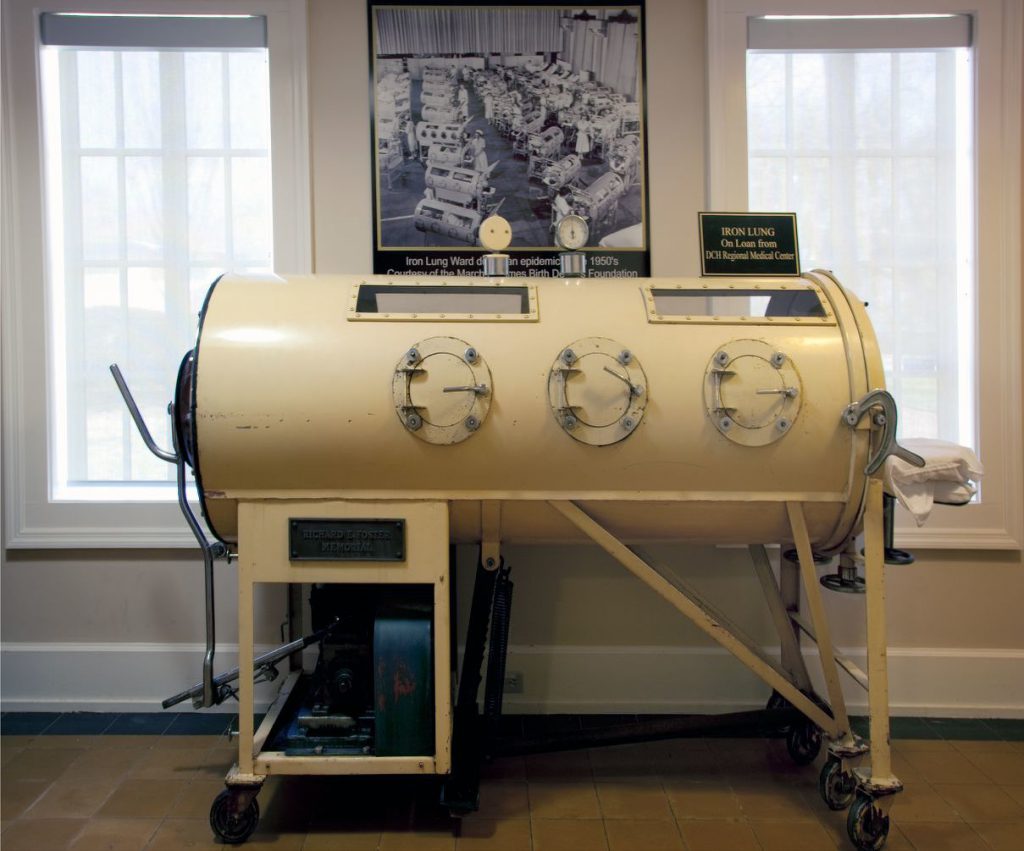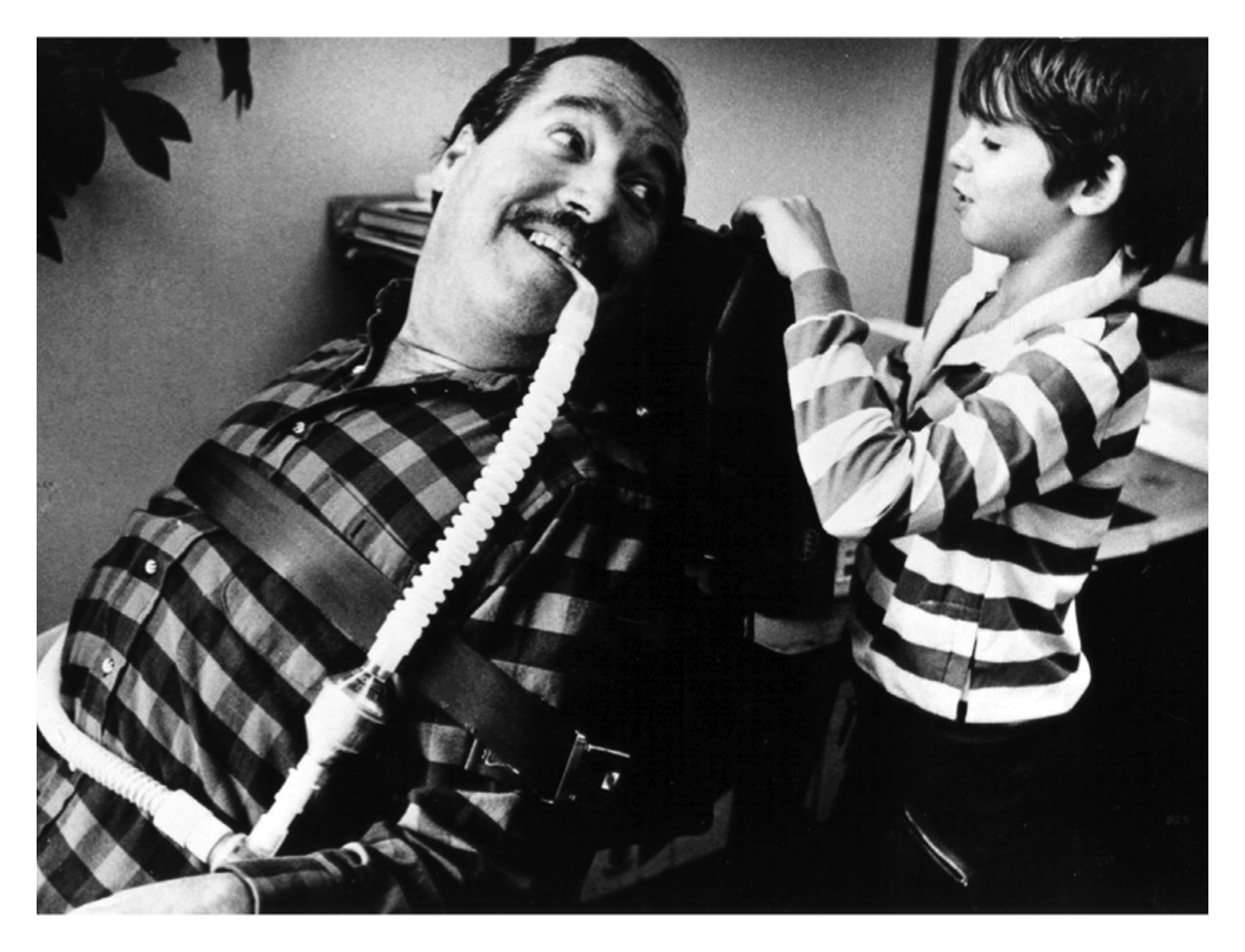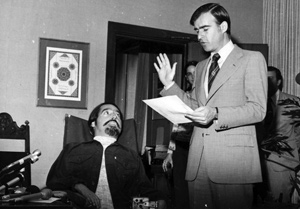In 1975, Edward V. Roberts is named director of the California Department of Vocational Rehabilitation — the same agency that had previously declared him “unemployable.” It has been a long and challenging path to get here.
At the age of 14, Roberts contracts polio and spends a year and a half in hospitals.
At one point during his hospitalization, he overhears his doctor telling his mother that she should hope he dies of the polio because otherwise he would live the rest of his life as a “vegetable” in an iron lung.
“So I decided to be an artichoke –“a little prickly on the outside but with a big heart,” Roberts explains later. “You know, the vegetables of the world are uniting, and we’re not going away!”

Roberts returns home at age 16, paralyzed almost completely from the neck down. As his parents apply for state benefits and training, the Department of Vocational Rehabilitation, which evaluates patients for services, declines to offer assistance, issuing a determination that Roberts is “unemployable.”
After graduating high school, which he nearly fails because he can’t pass Driver’s Ed or Physical Education, Roberts becomes the first severely disabled student to attend the University of California at Berkeley.
He faces numerous challenges including inaccessible bathrooms and sidewalks without curb-cuts that make it difficult to simply navigate the campus.
In an oral history, Roberts recounts being arrested in college — but not booked — for peeing outside a concert because the bathrooms inside aren’t constructed for his use.
Roberts is released on his own recognizance after the arresting officer confers with his sergeant who informs him that the jail can’t accommodate someone in a wheelchair, let alone someone in an iron lung.
“I had no words,” Roberts says in his oral history. “(But) I remember at that time I was thinking a lot that I really wanted to have a political career. I didn’t know how, but I really wanted to get into politics. And not just teach it, but really do it.“
A decade after graduating from Berkeley with his Masters in Political Science, Roberts is tapped to head the Department of Vocational Rehabilitation by newly-elected Gov. Jerry Brown.
As director, Roberts is responsible for managing an annual budget of $140 million and directing a staff of 2,500 to provide rehabilitation services to approximately 40,000 people a year. He remains in the position for Brown’s first two terms as governor.
After leaving the department on 1983, Roberts spends the rest of his life running the World Institute on Disability, the first non-profit dedicated to the development and advancement of a unified body of public policy on disability issues.
Roberts dies on March 14, 1995, at the age of 56. Shortly after his death, the City of Berkeley dedicates the Ed Roberts Campus at the Ashby BART station which includes fully accessible meeting rooms, a computer/media resource center, a fitness center, a cafe, and a child development center.
On January 23, 2018, Gov. Jerry Brown proclaims “Ed Roberts Day“
TOP PHOTO: Ed Roberts with son, Lee. From the World Institute on Disability.

